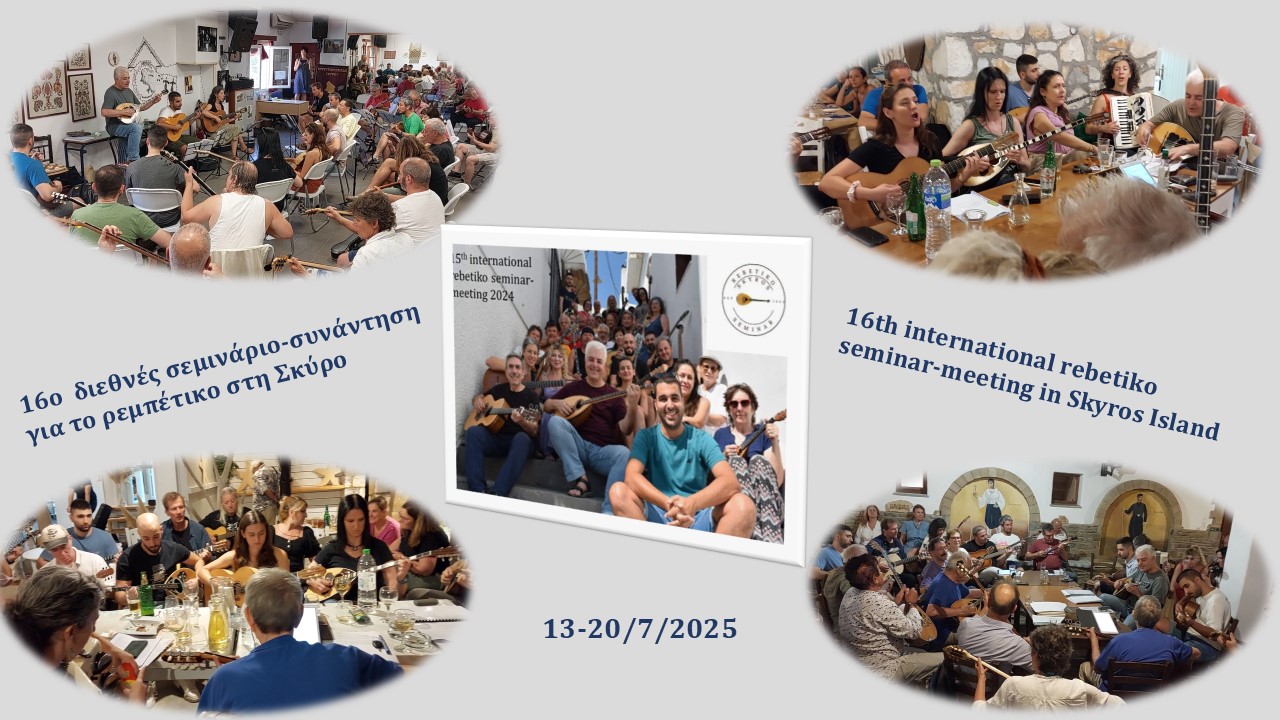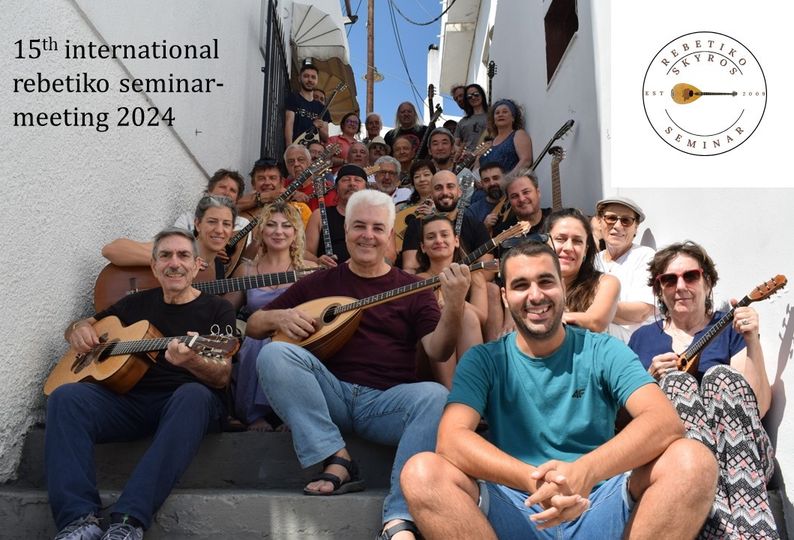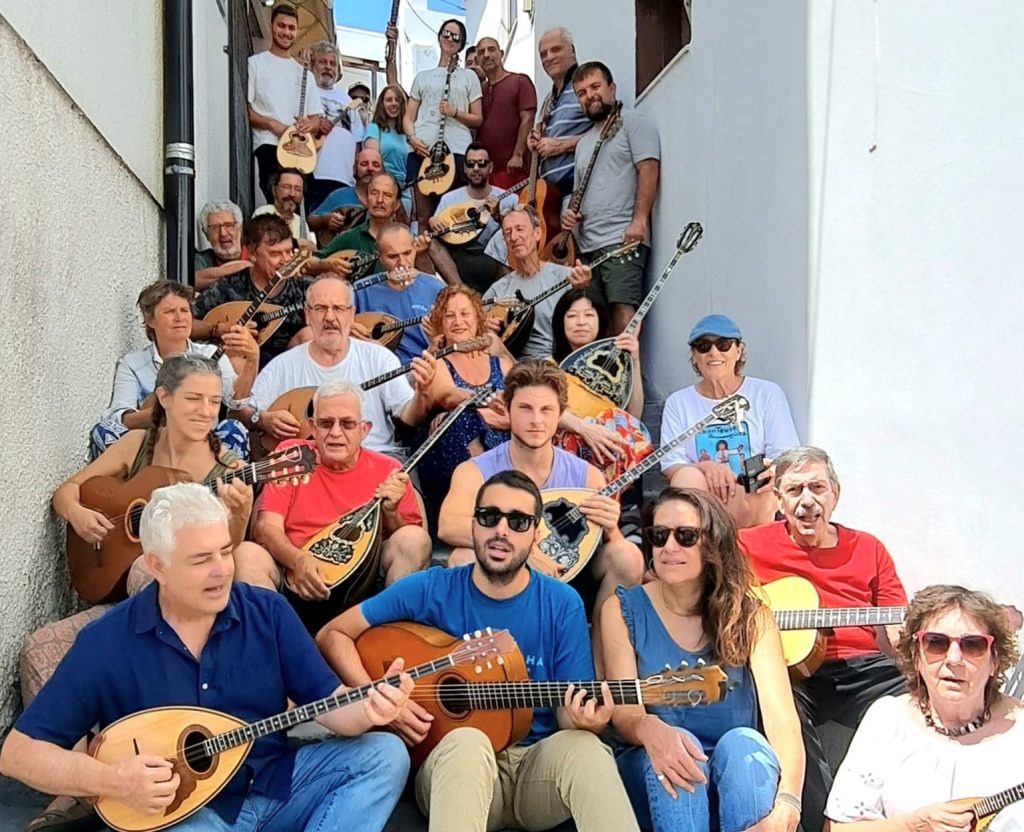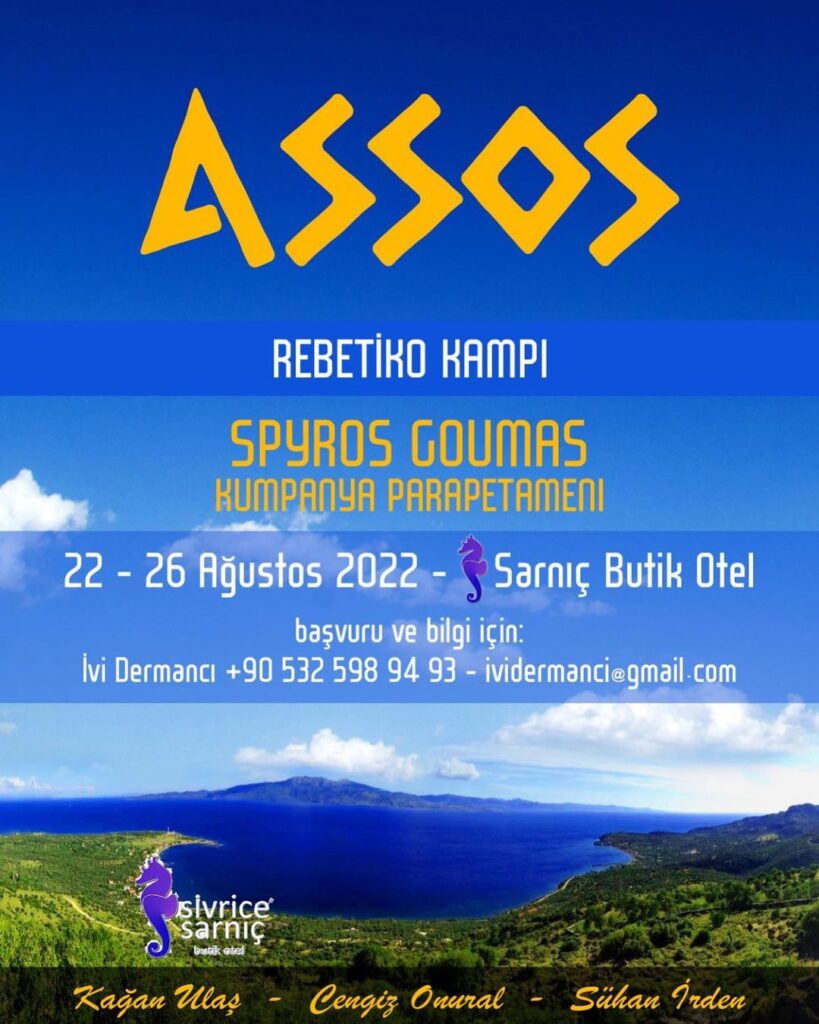“The journey of sounds through time”

The Cultural center dieleusis with the music group “Parapetamenoi”, the Association of Greek Arts and Evmaros Publications in collaboration with City of Athens Culture, Sports and Youth Organization represent the concert based on the unity of the Greek music (Byzantine/Chant music, traditional music and rebetiko) titled “The Journey of Sounds through Time” for the unity […]
Announcement of the 16th international rebetiko seminar-meeting in Skyros Island, July 13-20, 2025

Dear friends, The international seminar-meeting on rebetiko in Skyros started in 2009 and all these years has a basic volunteer support group, the musical group “Parapetamenoi”. At the same time, it is framed and supported by friends and all those who have participated all these years in its events. Since then, this voluntary effort takes […]
15th International Seminar-Meeting on the rebetiko July, 14-21, 2024 Skyros Island

Dear friends, This year’s musical meeting at 15th rebetiko seminar in Skyros 14-21/7/2024 once again successfully completed its destination, highlighting at the same time the immense need to continue our effort. We unfolded our hearts together, forgetting for a while our worries and various concerns. We used the vehicle of our folk music and communicated, […]
14th International Seminar-Meeting on the rebetiko July, 16-23 2023 Skyros Island, Greece

The 14th international seminar-meeting took place from 16 to 23 July 2023 in Skyros. It coincides with the 20th anniversary of the adoption of the relevant UNESCO Convention for the Safeguarding of the Intangible Cultural Heritage of Humanity and with the celebration of the “European Days of Cultural Heritage”. The international seminar-meeting on rebetiko in […]
Rebetiko seminar to Assos Music Camps

Parapetamenoi were invited from August 22 to 26 for a seminar on rebetiko as part of the Assos Music Camps organization,.
“The journey of Greek music in America” in the radio show of Themis Rodamitis “Our city”

On Saturday 23/4/22 12.00-1400 Themis Rodamitis and George Makris in the radio show of Themis Rodamitis “Our city” of “Voice of Greece” present the journey of Greek music in America that accompanied the Greek immigrants to their difficult journey in the late 19th and first half of the 20th century. Do not miss it!
13th Seminar- meeting 2022

13ο Διεθνές Σεμινάριο-συνάντηση για το ρεμπέτικο τραγούδι. Σκύρος, 17-24 Ιουλίου 2022
12th Seminar-Meeting 2021

After the difficult period for the whole world, created by the health crisis due to the pandemic which forced us to postpone last year’s International Rebetiko Seminar-Meeting, we decided to return to our favorite island to exchange smiles, expectations for an optimistic future and to enjoy our music in the natural environment of the island. […]
